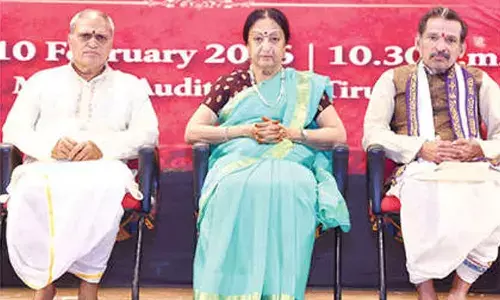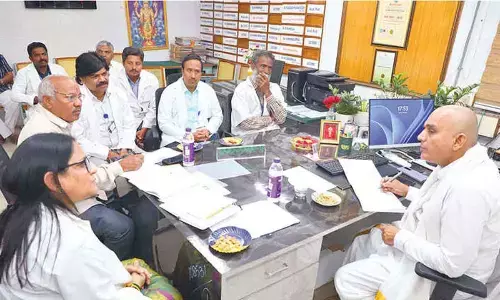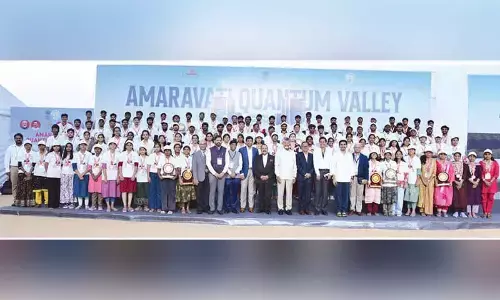Ganeshas to glow in organic colours

In its efforts to control pollution levels in water bodies, the Telangana State Pollution Control Board (TSPCB), in collaboration with Professor Jayashankar Telangana State Agricultural University (PJTSAU), has decided to provide organic dyes to idol makers during the oncoming Ganesh festival.
Hyderabad: In its efforts to control pollution levels in water bodies, the Telangana State Pollution Control Board (TSPCB), in collaboration with Professor Jayashankar Telangana State Agricultural University (PJTSAU), has decided to provide organic dyes to idol makers during the oncoming Ganesh festival.
With 30 tonnes of dye being produced this season, it is planning to reach out to two lakh households and 10,000 community Ganeshas, including the 58- feet tall Khairatabad Ganesha.
Speaking to media persons on Monday at Home Science College, the new Vice-Chancellor of PJTSAU Dr V Praveen Rao described this as the-first-of-its-kind experiment in India and said the university was aiming to provide organic dyes to all idols in the next three years in Telangana.
He said Rs 4 crore was earmarked for the project and Rs 1 crore had already been spent. “We have installed 60 per cent of equipment for producing the dye. It can produce five tonnes of dye every day,” he said.
After Telangana State Pollution Control Board took a decision to replace synthetic paints with natural dye paints, one of the faculties of the Apparels and Textiles division of the College of Home Science, PJTSAU, developed natural dye paints in many shades under the sub-project of National Agricultural Innovation Project of ICAR (Indian Council of Agricultural Research) which was funded by the World Bank.
University officials said they had applied for patent on producing organic dyes from natural sources.
They are also planning to spread awareness among idol artisans and users on the benefits of using natural dyes for idol decoration.
“As children are the most ideal agents of social change, around 10,000 school children were also sensitised through natural dye idol painting workshops over the years. All these efforts have resulted in a change in the consumers’ outlook with a growing demand for these idols,” said A Sharada Devi, Dean of Home Sciences.
Around eight lakh small idols and one lakh big idols (above 5 feet) are sold in Hyderabad city alone during the festival season. The requirement of organic dye for painting of idols is around 120 to 150 tonnes.
Regular idols are made of Plaster of Paris (gypsum, sulphur, phosphorous and magnesium) and painted with harmful synthetic dyes (contains mercury, cadmium, lead and carbon).
However, natural dyes use flowers, leaves, seeds, bark, wood and roots of plants. “Besides encouraging artisans to buy natural dyes, we also plan to sell eco-friendly Ganeshas at the Nizam College Grounds, Home Science College (Saifabad) and Telangana State Pollution Control Board,” said the Dean of Home Sciences.








